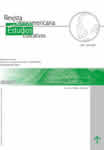Authors
Abstract
Today we are called upon to focus our attention, especially from the optic of the student-teacher, on what happens with education, in the challenges of their role, educational institutions, curricular components (their reference frames, models, pedagogical marks, visions). From the interests that move education in present time and that emerge toward a series of questions that invite us to a critical reflection: Education, for what? Educating with what sense? Is there any conscience of the implications of education? Are the socio-cultural contexts understood? Is education inferred in a world-wide level? Among these, there are points of departure and of arrival that can contribute to eliminating fall behinds of modern elements, and to the emergence of critical postures, in metaphors of a traveler who embodies knowledge and visualizes long journeys, as constituting themselves in searches, and crystallizing new options. There are also new possibilities of contemporary cultural formation, where the subject, time and historicity have a constitutive and constituent participation in visions and forms from the arts, literature and sociology, as well as integrating the vision of life, science and formation.
Keywords
References
Cruz B., Argenis. Gutiérrez Z., Heiler. Vallejo G., Sonía, Wagner O., Graciela. La formación docente: asunto que implica la reforma del pensamiento. Tesis de grado Universidad Católica de Manizales, Maestría en Educación, cohorte III, 2005.
Chacón, Carlos. Oscilaciones por el mundo de la vida. Condiciones epistemológicas y pedagógicas para una hermenéutica ambiental. Tesis de grado Programa de Maestría en Educación de la Universidad Católica de Manizales, 2003.
Gadamer, Hans Georg. (1977). Verdad y método. Editorial Sígueme. Salamanca.
García G., Luz Elena, Cardona G., Silvio. Aventura por el conocimiento en el campo “EDUCACIÓN Y DESARROLLO LOCAL”. Módulo de contextualización, Programa de Maestría en Educación de la Universidad Católica de Manizales, 2003.
Guarín J., Germán. La Interdisciplinariedad como sistema general de conocimientos humanos. Módulo de profundización, Programa de Maestría en Educación de la Universidad Católica de Manizales, 2003.
Herbart, Juan Federico. (1903). Bosquejo para un curso de pedagogía. Ed. Bartholomai.
Kant, Inmanuel. (1983). Pedagogía. pp. 103 a 105-Akal editor.
López, Norkzia. Pedagogía desde la perspectiva de la racionalidad compleja. Tesis de grado. Programa de Maestría en Educación de la Universidad Católica de Manizales, 2003.
Mélich, Joan-Carles. De Extraño al Cómplice. Antrophos. (sf.)
Morin, Edgar. (1999). El método I. La naturaleza de la naturaleza. Editorial Cátedra. Madrid. 263 p.
____________. El método IV. El método V.
____________. (2003). Educar en la era planetaria. Edit. Gedisa. 140 p.
____________. (1971). La revolución de los sabios. Editorial. Universitaria. 91 p.
____________. (1994). Introducción al pensamiento complejo. Editorial Gedisa.
____________. (1997). Cuidado con la inteligencia sospechosa. En: Gonzáles Sergio-Pensamiento complejo. Editorial Magisterio.
____________. (1999). La cabeza bien puesta. Editorial Nueva Visión.
____________. (2000). La mente bien ordenada. Editorial Seix Barral.
____________. (2003). Educar en la era planetaria. Editorial. Gedisa.
Pestalozzi, Johan Heinrich. (1981). Canto al cisne. Editorial Porrúa. México.
Pestalozzi, Johan Heinrich. (1996). Cartas sobre Educación Infantil. Editorial Ecnos. p.9.
Revista Educación y Pedagogía. Vol. 12. No. 26-27, FECODE, Bogotá.
Ierren, Eduardo. (1999). Educación y Modernidad. Entre la Utopía y la Burocracia. Antrophos Editorial.
Werner, Jaeger. (1995). Paideia: Los Ideales de la Cultura Griega. Fondo de Cultura Económica, México

 PDF (Español)
PDF (Español)
 FLIP
FLIP



















